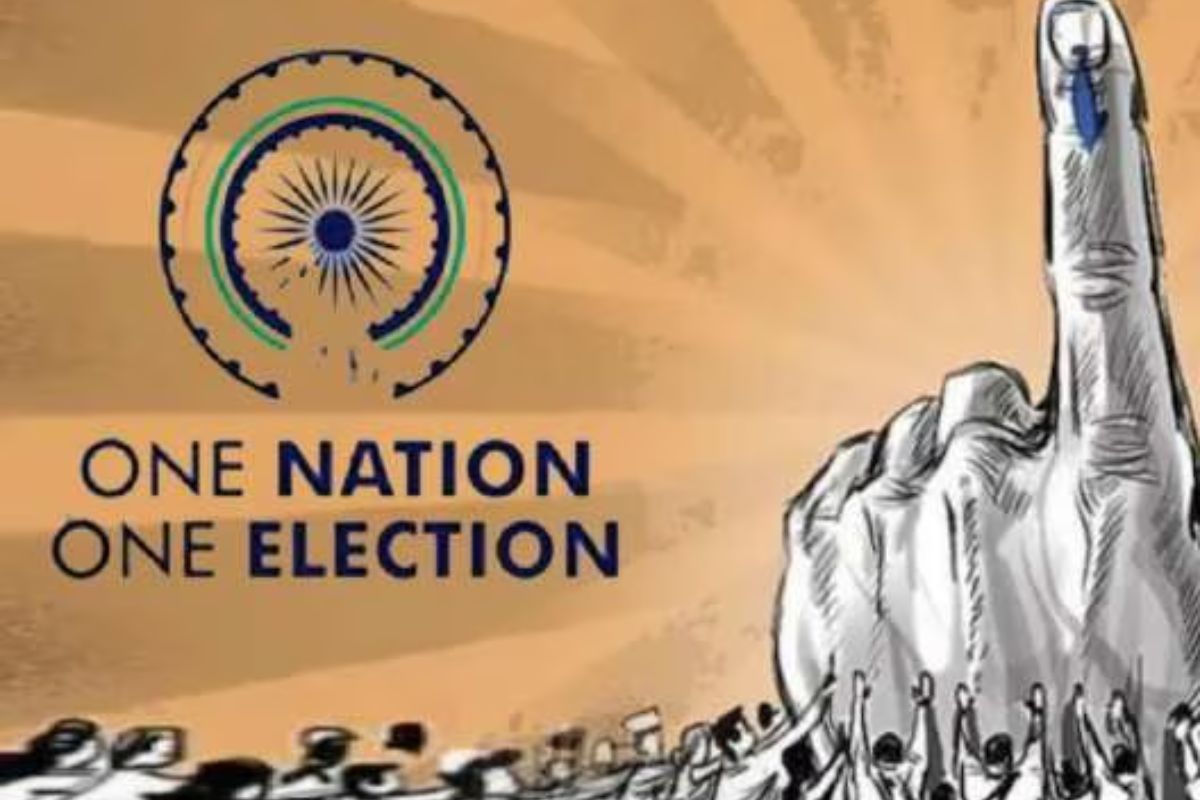


In a big move that could change how elections work in India, the High-Level Committee on ‘One Nation, One Election,’ led by former President Ram Nath Kovind, has given strong support to holding state and national elections together. This means that instead of having elections at different times for different levels of government, they would all happen at once. This idea has gotten a lot of support from important people like Union Home Minister Amit Shah and Gulam Nabi Azad, who leads the Democratic Progressive Azad Party (DPAP). The committee’s recommendations show a big change in how elections might happen in the future, with everyone voting together in one big election event.
Table of Contents
ToggleThe main point of the committee’s report is that having all elections at the same time isn’t just about changing the way things are done, but it could help boost the economy. They looked at a lot of data, including studies done by N.K. Singh and IMF economist Prachi Mishra. What they found is pretty interesting: when elections happen at the same time, the economy tends to grow more. According to the report, after elections where all polls were held together, the economy grew by about 1.5% more compared to times when elections were held separately.
Additionally, the committee explains how synchronized elections and financial measures work together. Contrary to what some may think, the report shows that when elections happen at the same time, there’s a noticeable decrease in how much prices rise for things we buy every day. This is a big change, as it suggests that when elections are synchronized, it helps control how much prices go up, and it also helps the government manage its money better. Furthermore, the committee stresses how important it is for the government to spend money wisely. They warn that spending too much during elections can have really bad effects on the economy.
Amid heated arguments about whether we should have elections for all levels of government at the same time, there are strong disagreements. Some people worry that doing this might threaten the way power is shared between the national government and the states, which is called federalism. N.K. Premachandran, who speaks for the Revolutionary Socialist Party (RSP), is one of these people. He says that having synchronized elections might harm India’s federal system. But others, like A.K. Verma, say we should think about this more carefully. They argue that having ‘one nation, one election’ is a good way to support federalism. They compare it to countries like the United States, where they also have elections for national and state leaders at the same time.
Although many people from both political parties like the idea of having all elections happen at the same time, actually making it work is hard because there are a lot of laws and practical problems to solve. A guy named A.K. Verma says it’s really important to clear up any confusion in the Constitution and figure out how to make sure the elections are fair. Also, the former boss of the Election Commission, S.Y. Quraishi, says that this idea mostly helps big national parties, so we need to make sure changes to the system are fair for everyone.
Going beyond just focusing on money matters and what the rules say, having all elections at the same time brings big changes in how our government works. When we make the voting process smoother and encourage more people to vote, having all elections together shows a huge step forward in making sure everyone’s voice is heard in running the country. Also, the idea of holding state elections at the same time as the first meeting of the new Lok Sabha members shows a promise to make our democratic traditions even stronger.
People involved in different industries all agree that having all elections happen at the same time is a good thing for making things clear and helping people trust the system more. When we don’t have elections happening at different times, it can cause problems and make things uncertain. But with all the elections together, it’s like a fresh start where everyone can take part and be sure the process is fair.
As India explores changing the way elections work, it’s like standing at a crossroads where big changes could happen. People are talking about having all elections at the same time, not just because it’s convenient for politics, but because it could be a huge step forward for India’s democracy. As everyone involved comes together to figure out how to make elections fairer and better, it’s really important to make sure everyone’s voice is heard and represented equally. This idea of having all elections together isn’t just a suggestion; it shows how serious India is about sticking to democratic values.


